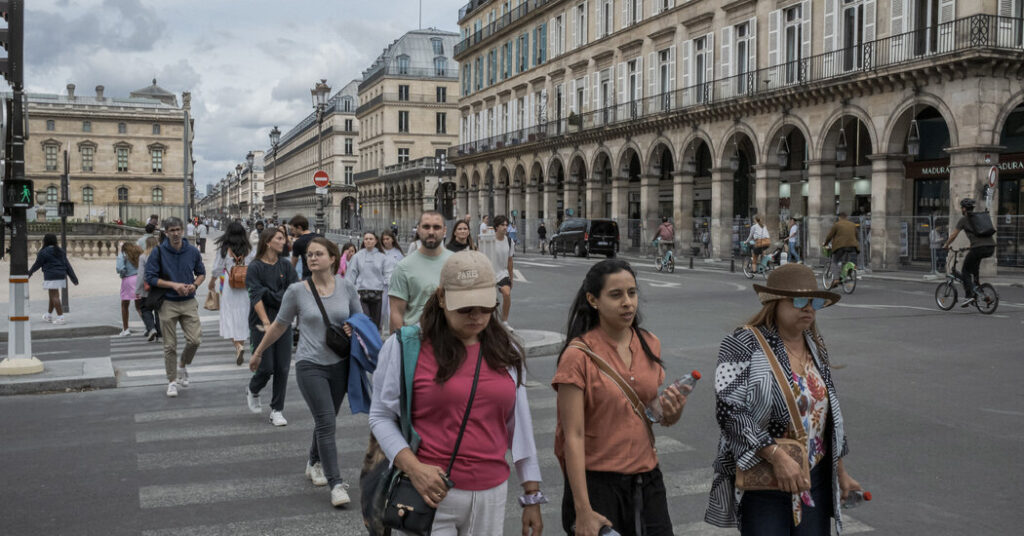French pollsters have predicted, based on preliminary results, that France could be stuck in an ongoing political deadlock as no party or coalition of parties appears to win an absolute majority in parliament.
Experts say the current way forward is unclear, but the country could face months of political instability, with President Macron facing a deeply divided parliament that includes two blocs staunchly opposed to him.
Dominique Rousseau, professor emeritus of public law at the Pantheon-Sorbonne University in Paris, said that “without an absolute majority, the government will be at the mercy of a coalition of opposition parties” to overthrow it.
Forecasts suggest that the National Assembly, the lower house of France’s parliament, will be roughly divided into three main groups with conflicting agendas and, in some cases, deep hostility to each other.
A group of left-wing parties known as the New Popular Front will win the most seats, followed by Macron’s centrist coalition and the nationalist, anti-immigration National Front, according to opinion polls released after the final round of legislative election voting on Sunday night. Party rally. It is unclear whether the centrist or right-wing National Rally will emerge as the second largest group.
As it stands, none of the three major groups appear to be able to cooperate with the others. Each party could try to cobble together a working majority with a handful of smaller parties or independent lawmakers to capture the rest of the House of Commons. But their ability to do so is uncertain.
“France’s political culture is not conducive to compromise,” said Sami Benzina, a professor of public law at the University of Poitiers, noting that French institutions are often designed to produce “clear majorities that can govern themselves.”
It is not unprecedented in France that no party has succeeded in obtaining an absolute majority (at least 289 of the 577 seats in the lower house). This is exactly what happened during the last legislative elections in 2022.
But that’s only because Macron’s centrist coalition is large enough – about 250 seats – and the parties opposed to him are too divided to pose a sustained threat. Otherwise, Macron’s government will be in danger of collapse.
This time, Macron’s options appear more limited.
His centrist coalition cannot govern alone. Few smaller parties – even those more moderate on the left or right – are eager to be associated with Mr Macron, who is deeply unpopular and has three years left in his term.
The National Rally has said it will govern only if it gets an absolute majority or just one vote short of it and believes it can strike a deal with enough other lawmakers to close the gap. The party’s long-time leader Marine Le Pen told French radio last week that the party would not agree to “just sit on the ministerial bench and do nothing”, which she said would be the “gravest betrayal” of the party’s voters.
On Sunday, Jean-Luc Mélenchon, leader of a left-wing New Popular Front party, said he would not negotiate a joint government with Macron’s coalition.
Some analysts and politicians have floated the possibility of a broad “rainbow” coalition of lawmakers that could agree on a limited set of key issues and extend from the Greens to more moderate conservatives. But some political leaders have ruled out that possibility.
Another possibility is for a caretaker government of politically neutral experts to handle day-to-day affairs until a political breakthrough occurs. It was also a departure from French tradition.
France has a strong civil service that can function for some time without a government. But with the Summer Olympics just weeks away, Congress typically approves a budget in the fall. Some analysts believe Macron’s position will become untenable and he will have to resign, but he has said he will not do so.

